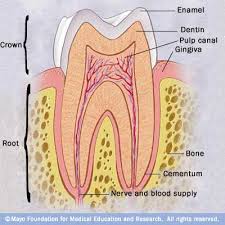NCMA Cardiology Launches “Be Heart Smart” Campaign During National Heart Month
Santa Rosa, CA (PRWEB) February 04, 2015
Heart disease has been the number-one killer of Americans for the past 80 years. In 2015, it isn’t news to most people that heart disease is the leading cause of premature death in the United States. It also isn’t news to most people that heart disease is preventable. The shocking news is that even though people know the risks of heart disease and that it is preventable, the incidence of heart disease and related deaths continues to grow. According to the American Heart Association, one in seven deaths is related to coronary heart disease, and one in nine is caused by heart failure. In light of the growing problem, February has been deemed “Heart Month” in America. NCMA Cardiology has launched its “Be Heart Smart” social media campaign this month as a means to help people realize the power of preventative healthy living to reverse the trend of rising heart disease.
While there are some risk factors that can’t be controled such as age, gender, heredity, and race, people can significantly mitigate their risk for heart disease by making healthy lifestyle choices. With its campaign, NCMA Cardiology hopes to reach as many people as possible and to cause them to stop and think about their hearts when making health-related choices. NCMA cardiologists have identified seven interrelated goals that will help people reduce their risk for heart disease. In essence, the “Be Heart Smart” campaign is about (1) managing diet and weight, (2) exercising regularly, (3) quitting smoking, (4) reducing stress, (5) keeping blood pressure in the healthy range, (6) managing cholesterol levels, and (7) controlling blood sugar.
First and foremost, managing diet and weight is the most important step towards minimizing one’s risk of heart disease. NCMA Cardiology strives to redefine the meaning of ‘diet’ in popular culture. One’s diet encompasses everything he or she ingests over a lifetime. Alternatively, when one ‘goes on a diet,’ this most likely means the dieter is resisting the foods that he or she prefers to eat for a set period of time for the sake of losing weight. This type of dieting is not an effective way to sustain weight loss, as once the diet ends, the person rewards themselves with the unhealthy foods they resisted while dieting. To truly have a healthy diet, NCMA cardiologists recommend eating smaller portions at meals, and snacking on vegetables and fiber-rich whole grains during the day.
While obesity poses one of the most serious threats to heart health, it isn’t the only factor for increased risk of heart disease due to a poor diet. Everyone’s body processes food differently. Although it is unlikely, some people can appear slim and fit while sustaining themselves on potato chips and soda pop. This does not change the fact that these people are increasing their risk for heart disease through their diets. What foods are really the best for your heart? Recent studies have shown that the “Mediterranean diet” can reduce the risk heart disease by about 20% in both men and women.
“Just taking a walk in the morning or the evening will put you on your way to better heart health.”
After maintaining a healthy diet, exercising regularly is the next most important step towards reducing hearth health. Not only will living a sedentary lifestyle reduce muscle strength and endurance, it will also contribute to metabolic problems such as high blood sugar and cholesterol. Much scientific research has gone into how much exercise is enough, and today’s leading experts recommend getting at least 60 minutes of continuous, moderate aerobic exercise each day of the week. NCMA cardiologists recognize that this recommendation is more than what many Americans are willing to do or have time for, so they level with patients and tell them the raw facts—true up until the extreme, the more cardiovascular exercise people get everyday, the more they reduce their risk for heart disease. While 60 minutes a day brings about excellent health benefits, even just 20 to 30 minutes of continuous, moderate aerobic exercise five days a week has been shown to reduce the risk for heart disease by 30-50%. Just taking a walk in the morning or the evening will put you on your way to better heart health.
It shouldn’t come as a surprise to anyone that smoking dramatically increases your risk of cardiovascular heart disease. Like it says on every cigarette box today, smoking causes heart disease. Smoking accelerates the progression of heart disease in people predisposed to having it, and drastically increases the chances of it developing in people who would otherwise be at a very low risk. In conjunction with the Northern California Center of Well-Being, NCMA offers smoking cessation classes. Even if a smoker isn’t ready to quit, it is important to talk to a NCMA physician about smoking habits in order to gain access to all of the resources, clinics and classes offered through NCMA.
When it comes to reducing stress, it is important to clarify what kind of stress is most necessary to reduce for the sake of improving heart health. Reducing physical stress such as exercise, for example, should not be thought of as an effective means to reduce one’s risk of heart disease. Emotional stress, such as work-related, relationship, and financial stresses, has long been suspected and recently confirmed to increase one’s risk for heart disease. These types of stresses, however unpleasant or dangerous, cannot always be avoided. Reducing stress, therefore, is ultimately about finding ways to relax when confronted with stressful situations. No two people will ever react to the same type of stress the same way, so it is also important for individuals to determine the stresses that affect them most.
High blood pressure, high cholesterol, and off-balance, volatile blood sugar levels are all relatively common in our society and can significantly increase one’s risk of developing heart disease. While the best way to mitigate these risks is through exercise, healthy eating, and not smoking cigarettes, treatment may require management with drug therapy and careful monitoring by a physician. Other contributing factors other than lifestyle choices such as genetics and metabolic disorders are often unavoidable and may warrant even closer care by a doctor.
Improving heart health and reducing the risk for heart disease doesn’t have to be overwhelming. Simply making an effort to be conscious of heart health in day-to-day living can go a long way. To start, NCMA Cardiology encourages everyone to pick two or three goals on the “Be Heart Smart” list to go after. In addition, keeping regular appointments with a cardiologist before any serious heart issues arise is the best way to stay on top of heart health.
NCMA Cardiology is comprised of 14 cardiologists, two cardiothoracic and vascular surgeons, and one electrophysiologist—all board-certified in their fields. Since 1975, the group has focused on sub specialization within cardiovascular health to provide services by the most highly trained and experienced physicians and staff. In accordance with its practice of providing comprehensive cardiovascular health care, NCMA offers HeartWorks, pacemaker and defibrillator clinics, anti-coagulation clinics, congestive heart failure clinics, pulmonary hypertension clinics, lipid clinics, and an adult congenital heart clinic in addition to general check-ups with cardiologists. NCMA’s HeartWorks Cardiac Rehabilitation Center provides each patient with a personal diet and exercise plan supervised by a team of physicians, nurses, and cardiac exercise specialists.
NCMA Cardiology provides cardiac care in three counties, with 11 offices, located in Santa Rosa, Petaluma, Sonoma, Healdsburg, Fort Bragg, Mendocino, Gualala, Ukiah, and Lakeport. Visit our website at http://www.ncmahealth.com for more information on NCMA health services and contacting NCMA offices. Please call (707) 573-6166 to schedule an appointment with NCMA Cardiology, and visit NCMA’s Facebook page to follow the “Be Heart Smart” campaign.
###
Follow us on:
![]()
![]() ©Copyright 1997-
©Copyright 1997-
, Vocus PRW Holdings, LLC.
Vocus, PRWeb, and Publicity Wire are trademarks or registered trademarks of Vocus, Inc. or Vocus PRW Holdings, LLC.
More Benefits Of Healthy Eating Press Releases
 Fat Burning Kitchen:Never count calories again
Fat Burning Kitchen:Never count calories again Low Glycemic Veggies
Low Glycemic Veggies 100% protein quinoa grain
100% protein quinoa grain Daily Antioxidant/Natural Remedies
Daily Antioxidant/Natural Remedies Get Truth About Healthy Teeth
Get Truth About Healthy Teeth Healthy Cooking
Healthy Cooking
Leave a Reply
You must be logged in to post a comment.